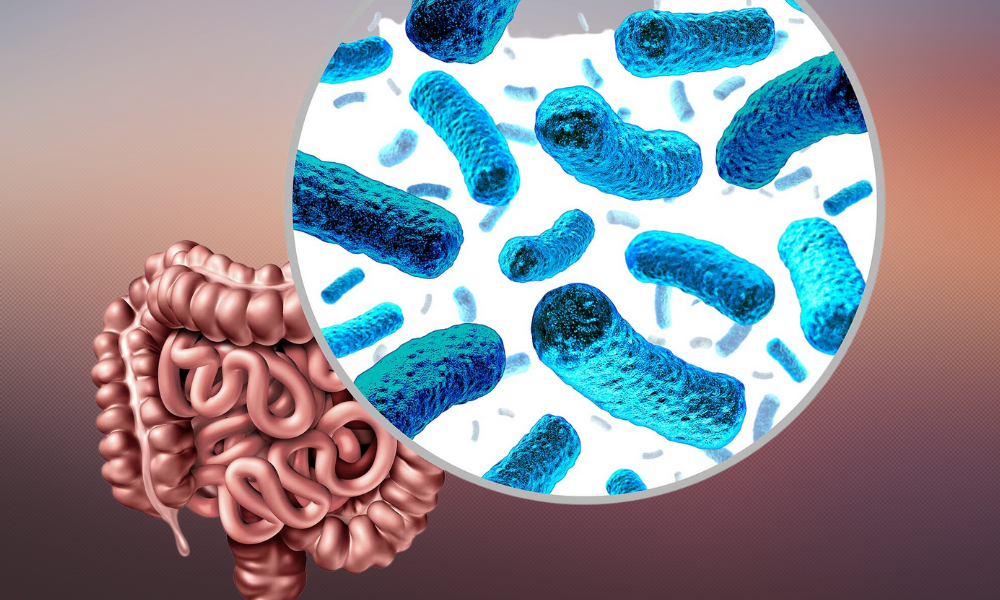Attention-Deficit/Hyperactivity Disorder (ADHD) is a common neurodevelopmental disorder that affects both children and adults. It is characterized by symptoms such as inattention, hyperactivity, and impulsivity, which can significantly interfere with daily functioning.
While the exact causes of ADHD are not fully understood, researchers have been exploring various treatment options to manage its symptoms. One emerging area of interest is the potential use of probiotics in alleviating ADHD symptoms.
In this article, we will delve into the topic of probiotics and their possible effects on individuals diagnosed with ADHD.
Understanding ADHD and Its Causes
ADHD is a chronic condition that often begins in childhood and may persist into adulthood. It is known to affect millions of children worldwide. The disorder is characterized by an ongoing pattern of inattention, hyperactivity, and impulsivity, which can lead to difficulties in academic, occupational, and social settings.
While the exact causes of ADHD are not fully understood, research suggests that a combination of genetic, environmental, and neurological factors contribute to its development.
Exploring Probiotics
Probiotics are live bacteria and yeasts that are beneficial for our health, particularly for our digestive system. These microorganisms are found in certain foods and supplements and help maintain a healthy balance of gut bacteria.
The gut-brain axis, a bidirectional communication between the gut and the brain, has gained attention in recent years.
Researchers have discovered that the gut microbiome plays a vital role in various aspects of our brain development and function, including mood, behavior, and cognition.
This connection has led to investigations into the potential use of probiotics to influence brain health and potentially affect conditions like ADHD.
Understanding the Gut Microbiome
The human body is a complex network of interconnecting systems, each playing its unique role in maintaining our overall health.
One of the lesser-known but essential components of this network is the gut microbiome, a vast community of trillions of microorganisms living in our digestive tract.

Recent research has drawn connections between the gut microbiome, behavior, and Attention Deficit Hyperactivity Disorder (ADHD) in otherwise healthy children too.
The gut microbiome comprises various species of bacteria, viruses, fungi, and other microscopic organisms. These microorganisms, collectively known as microbiota, play a crucial role in our health. They aid digestion, stimulate the immune system, and even produce essential vitamins.
A healthy gut microbiome is characterized by a diverse mix of beneficial bacteria, which helps maintain the body’s overall health.
Gut Microbiome and Behavior
The gut microbiome's influence extends beyond physical health. The gut and the brain are directly connected through a bidirectional communication pathway known as the gut-brain axis. This pathway allows the gut microbiota to influence brain, cognitive function, and behavior.
Research has shown that changes in the composition of the gut microbiota can affect mood and behavior. For instance, certain types of bacteria produce neurotransmitters like serotonin and dopamine, which play a crucial role in regulating mood and behavior.
An imbalance in these bacteria could potentially lead to behavioral issues.
Gut Microbiome and ADHD
ADHD, or Attention Deficit Hyperactivity Disorder, is a neurodevelopmental condition that affects individuals of all ages. It is characterized by persistent patterns of inattention, impulsivity, and hyperactivity.
The idea that probiotics can impact mental health is rooted in the concept of the gut-brain axis. Numerous studies have shown that alterations in the quality of life gut microbiota can influence brain function and behavior.

Recent research suggests a potential connection between the gut microbiome and ADHD. Scientists have discovered that children with ADHD often have a distinct composition of gut microbiota compared to those without the disorder.
While the exact relationship remains incompletely understood, it is hypothesized that an imbalanced gut microbiota may contribute to the development or exacerbation of ADHD symptoms.
Probiotics and the Gut Microbiome
Probiotics are live bacteria and yeasts that offer numerous health benefits, particularly for your digestive system. They play a crucial role in maintaining a balanced gut microbiota and promoting a healthy gut microbiome.
When consumed in sufficient quantities, probiotics provide advantages to the host. Among the extensively researched probiotics are the Lactobacillus and Bifidobacterium strains, which can be found in various fermented foods and supplements.
A study published in "Pediatric Research" revealed that infants with lower levels of Bifidobacterium at six months old had a higher likelihood of being diagnosed with ADHD or an Autism Spectrum Disorder by the age of 13.
Another study observed that supplementing with Lactobacillus and Bifidobacterium strains improved ADHD symptoms in children.
The precise mechanisms by which probiotics influence ADHD are still being investigated. However, some theories suggest that probiotics may modulate the immune response, reduce inflammation, enhance gut barrier function, and produce neuroactive substances. These factors could potentially impact brain function and development.
Integrating probiotics into a child's diet may help manage ADHD symptoms. While some studies have shown that probiotic supplements can reduce ADHD symptoms, further research is necessary to validate these findings.
Understanding the role of the gut microbiome in our overall health, both physical and mental health related quality well, is an exciting frontier in medical science. It offers the promise of new, more holistic approaches to treating a wide range of conditions, including ADHD.
Other Research and Findings
Several studies have explored the effects of probiotics on ADHD symptoms, but it is important to note that the research is still in its early stages.
A 2020 systematic review published in the journal Nutrients analyzed the available evidence and found some promising results.
The review suggested that probiotics might have a positive impact on ADHD symptoms, particularly in reducing hyperactivity and impulsivity.
However, more research is needed to establish a clear causal relationship and determine the optimal strains, dosages, and treatment durations for individuals with ADHD.
Types of Probiotics and Potential Effects
There are various types of probiotics available, each containing different strains of bacteria or yeasts. Some commonly studied strains for ADHD include Lactobacillus acidophilus, Bifidobacterium bifidum, and Lactobacillus rhamnosus.
These strains have shown potential in modulating neurotransmitters, reducing inflammation, and influencing brain function.
However, it is crucial to consult with a healthcare professional before starting any probiotic supplementation, as individual responses may vary.
Probiotics can be obtained from various foods such as yogurt, kefir, sauerkraut, and other fermented foods. Alternatively, they can be consumed in the form of dietary supplements.
Safety and Side Effects
Probiotics are generally considered safe for most individuals, with minimal side effects. However, it is important to note that in some cases, certain individuals may experience digestive discomfort, such as gas or bloating when initially introducing probiotics to their system.
Additionally, individuals with compromised immune systems or those on specific medications should exercise caution and seek advice from a healthcare professional.
ADHD and Probiotics FAQ's
If you have a child or teen struggling with ADHD, you may be aware of the potential benefits of probiotics. But did you know that they could be the key to helping your teen manage their ADHD symptoms?

It's true! Probiotics are a hidden solution in your gut that can assist your children in managing their ADHD symptoms. However, with numerous probiotic brands and types available, it can be challenging to determine the best ones for your teen.
To provide you with more information about this surprising solution, we have compiled a list of the most frequently asked questions about probiotics for kids, teens, and even adults with ADHD.
What is the link between ADHD and probiotics?
Research suggests that probiotics may help improve symptoms of ADHD in some people. Probiotics are beneficial bacteria that can help balance the gut microbiome, which is thought to play a role in mental health.
Studies have found that people with ADHD have different gut bacteria than those without ADHD, and that supplementing with probiotics may help improve symptoms. Additionally, probiotics may help reduce inflammation in the body, which can also help improve symptoms of ADHD.
What are the most common probiotics for treating ADHD?
The most common probiotics for treating ADHD are Lactobacillus acidophilus, Bifidobacterium bifidum, and Bifidobacterium longum. These probiotics are beneficial for improving gut health, which can help reduce symptoms of ADHD.
Additionally, probiotics can help reduce inflammation in the body, which can also help reduce symptoms of ADHD. Other probiotics that may be beneficial for treating ADHD include Saccharomyces boulardii, Lactobacillus rhamnosus, and Lactobacillus plantarum.
Is there scientific evidence to support the effectiveness of probiotics for treating ADHD?
At this time, there is not enough scientific evidence to support the effectiveness of probiotics for treating ADHD. However, there is some evidence that probiotics may help improve symptoms of anxiety and depression, which are often associated with ADHD.
Additionally, probiotics may help improve gut health, which can have a positive effect on overall health and wellbeing. More research is needed to determine the efficacy of probiotics for treating ADHD.
Who should consider taking probiotics for treating ADHD?
Probiotics may be beneficial for people with ADHD, especially those with digestive issues. Probiotics are beneficial bacteria that help to maintain a healthy balance of bacteria in the gut. Studies have shown that probiotics can help to reduce inflammation in the gut, which can help to improve symptoms of ADHD.
Additionally, probiotics can help to improve the absorption of nutrients, which can help to improve overall health and well-being. Therefore, people with ADHD who have digestive issues or who are looking to improve their overall health may want to consider taking probiotics.
How do probiotics work to help treat ADHD?
Probiotics are beneficial bacteria that can help to restore balance to the gut microbiome. This balance is important for overall health, including mental health. Studies have shown that probiotics can help to reduce symptoms of ADHD by improving gut health, reducing inflammation, and improving the absorption of essential nutrients.
Probiotics can also help to reduce stress and anxiety, which can be a contributing factor to ADHD. Additionally, probiotics can help to reduce the levels of toxins in the body, which can also help to reduce symptoms of ADHD.
How long does it take for probiotics to start helping with ADHD?
It can take anywhere from a few weeks to a few months for probiotics to start helping with ADHD symptoms. Probiotics work by restoring the balance of beneficial bacteria in the gut, which can help reduce inflammation and improve digestion.
This can help improve focus and concentration, as well as reduce hyperactivity and impulsivity. It's important to note that probiotics are not a cure for ADHD, but they can be a helpful supplement to other treatments.Are there any side effects associated with taking probiotics?
What foods are high in probiotics?
Foods that are high in probiotics include yogurt, kefir, sauerkraut, kimchi, miso, tempeh, kombucha, and pickles. Probiotics can also be found in some supplements. Eating a variety of these foods can help to ensure that you are getting a wide range of beneficial bacteria.
Is there a difference between taking probiotics in supplement form or through food?
Yes, there is a difference between taking probiotics in supplement form or through food. Probiotics in supplement form are typically more concentrated and may contain a wider variety of strains than those found in food. Additionally, probiotics in supplement form are more stable and can survive the digestive process better than those found in food.
However, probiotics found in food can provide additional benefits such as prebiotics, which can help to feed the probiotics and promote their growth. Ultimately, it is best to consult with a healthcare professional to determine which form of probiotics is best for you.
Are there any specific probiotic strains that are best for treating ADHD?
At this time, there is not enough evidence to suggest that any specific probiotic strain is best for treating ADHD. However, research has shown that probiotics may help improve symptoms of ADHD in some people.
Probiotics may help reduce inflammation in the gut, which can help improve focus and concentration. Additionally, probiotics may help improve the balance of bacteria in the gut, which can help reduce symptoms of anxiety and depression, which are often associated with ADHD.
Final Thoughts & Recommendations
Our primary aim in this article is to answer many have had on can probiotics help ADHD. It's admitted that further research is required to fully comprehend the intricate relationship between the gut microbiome, behavior, and ADHD.
However, the current findings present new possibilities for managing ADHD. Parents and caregivers of children with ADHD might consider introducing probiotics into their child's diet to foster a healthy gut microbiome. As always, it is crucial to consult with a healthcare professional before embarking on any new dietary regimen.
While initial research suggests potential benefits of probiotics in alleviating ADHD symptoms, more rigorous studies are necessary to establish their effectiveness and safety. Collaborating closely with healthcare professionals is vital for individuals diagnosed with ADHD to develop a comprehensive treatment plan.
Probiotics can be viewed as part of a holistic approach to managing ADHD, alongside evidence-based interventions like behavioral therapy, cognitive training, and medication if deemed necessary.
It is important to recognize that responses to probiotics may vary among individuals, emphasizing the significance of tailored treatment strategies guided by informed medical advice.
Remember, prior to modifying your treatment plan, consult with a healthcare professional who can provide personalized guidance based on your specific needs and medical history.
References
Probiotics and the Gut Microbiome
PubMed Central - "Psychobiotics and the Manipulation of Bacteria–Gut–Brain Signal"https://www.ncbi.nlm.nih.gov/pmc/articles/PMC5102282/
PubMed Central - "Effects of Lactobacillus plantarum PS128 on Children with Autism Spectrum Disorder in Taiwan: A Randomized, Double-Blind, Placebo-Controlled Trial" https://pubmed.ncbi.nlm.nih.gov/30979038/
Gut Microbiome and ADHD
PubMed Central - "The gut-brain axis: interactions between enteric microbiota, and enteric nervous systems" https://pubmed.ncbi.nlm.nih.gov/25830558/
Probiotics and the Gut Microbiome
Nature Reviews - "The International Scientific Association for Probiotics and Prebiotics consensus statement on the scope and appropriate use of the term probiotic" https://www.nature.com/articles/nrgastro.2014.66








